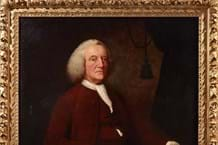Rejecting the claim that New York's auctioneers follow common practice when preserving the anonymity of their clients, the Supreme Court said last month that a binding auction contract in the state must include the name of both buyer and seller.
The shock September 19 ruling delivered by Justice Peter B. Skelos of the Supreme Court of the State of New York, Appellate Division was prompted by an otherwise 'routine' legal action brought by Chester, New York saleroom William J. Jenack against a buyer who declined to pay his bill.
Back in September 2008, Albert Rabizadeh, a Long Island-based dealer in Russian works of art, had bid $400,000 ($460,000 including buyer's premium) for a silver and enamel box by Ivan Petrovich Khlebnikov. When his buyer failed to pay, Jenack began legal action that in January 2010 saw Rabizadeh ordered by the New York State Supreme Court to pay $497,398 minus $109,250, the price achieved when the box was reoffered in May that year.
However, the case took a less orthodox route when Rabizadeh took the court's decision to appeal and argued that the auction house had lacked the proper documents to demand payment. His argument was based on the letter of the General Obligations Law, the statute covering contracts between buyers and sellers in New York, which says a legally recognised contract must include the names of both parties.
The General Obligations Law states: "Every agreement, promise or undertaking is void, unless it or some note or memorandum thereof be in writing, and subscribed by the party to be charged therewith, or his lawful agent…
"If the goods be sold at public auction, and the auctioneer at the time of sale, enters in a sale book, a memorandum specifying the nature and price of the property sold, the terms of the sale, the name of the purchaser, and the name of the person on whose account the sale was made, such memorandum is equivalent in effect to a note of the contract or sale, subscribed by the party to be charged therewith."
Justice Peter B. Skelos (with three other justices concurring) agreed in his ruling that the General Obligations Law was clear on this matter. He rebuffed the auction house's claim that they had merely followed common practice when they did not disclose the consignor's name (instead the consignor of the Russian box was noted simply with the number 428).
William Jenack's attorneys, Benjamin Ostrer and Cynthia Dolan, argued that the requirement specifying the name of the person for whom they were selling was "satisfied solely by inclusion of the consignor's assigned number on the clerking sheets". Justice Skelos said that was not enough.
"The plaintiff [Jenack] claims that it is common practice for auction houses not to disclose the names of their consignors, and that such disclosure is 'unnecessary'. While it may be true that auction houses commonly withhold the names of consignors, this court is governed not by the practice in the trade, but by the relevant statute.... In that regard, the statute clearly and unambiguously requires that the 'name of the person on whose account the sale was made'... be provided in the memorandum."
Wider Implications
The immediate effect of the ruling was that previous court decisions approving Jenack's attempts to recover damages from Rabizadeh were overturned.
However, the wider implications of the ruling to the New York auction scene are huge. Not only could it permit similarly unhappy 'buyers' to duck out of an auction contract where the seller's name is not listed, but it means auction houses will no longer be able to keep the names of consignors secret.
The potential effects of the ruling were not lost on Christie's, who have joined Jenack in the appeal process to have the ruling overturned.
Christie's declined to comment on the matter at this stage.
Justice Skelos included a paragraph in his decision suggesting the need for a change in the law to accommodate common practice in the auction world: "To the extent that the requirement in General Obligations Law may be at odds with the general industry practice, and may be burdensome to consignors or auction houses or both, a change in the law to eliminate that requirement may be warranted. However, consideration of the propriety of that change is not for the courts, but rests with the Legislature."




